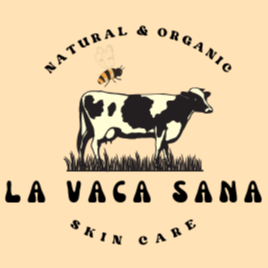Your gut microbiome will predict everything about you, and you have the power to help it or hinder it.
Inside all of us lives a microbiome of bacteria, as individual as you are, no two people have the same microbiome. These different species have different roles amongst each other, helping break down the diverse types of food we ingest. When we eat fibre, these microbes break it down for us, releasing something called short chain fatty acids (SCFA). These SCFA move through our intestines to our large intestine (colon) looking for abnormal cell growth, attaching to it, and making it quite literally, commit suicide, stopping cancer formation in its tracks. Currently, colon cancer is the second most common cancer death globally, yet studies have shown 95% of people in western countries do not meet daily fibre requirements.
SCFA aren’t done there. They strengthen the integrity of the intestinal lining, looking for and preventing gut permeability - leaky gut.
The gut-brain axis: SCFA cross the blood-brain barrier, influencing us significantly. 95% of serotonin is produced by the gut, leaving only 5% by the brain itself. Serotonin is crucial for happiness, focus, and feeling zest and energy. SCFA also assist in the integrity of the blood-brain barrier, making sure no toxins pass to the brain, allowing normal and healthy function, mentally and physically. SCFA assist in autoimmune conditions as they empower tregs (t regulatory cells) that turn down our immune system and prevent it from attacking itself.
It's like a jungle in there it makes me wonder...
Studies have shown microbiomes can either be scarce of species differentiation, or like total jungles, and the people who had jungles of microbial species were those who ate 30 different types of fibre (plant matter) throughout the week. Fibre is different in every single plant, and this diverse intake will grow your colony of microscopic species in your gut.
You are married to your partners gut
The people you are closest to, overtime, will share similarities to your gut microbiome, and even further, depending on that relationship, whether it’s a healthy or unhealthy connection, will also determine how much microbiome similarity you share together.
Alcohol and gut permeability
Simply, alcohol damages the gut, it destroys microbes... but more interestingly, alcohol is now linked to a bacterial endotoxin known as lipopolysaccharide (LPS), that is not meant to be found in our blood, and if it has been, there has been damage to the gut barrier (intestinal lining), allowing a leak into the bloodstream. Studies have shown together as blood alcohol content (BAC) rises, lipopolysaccharide rises, as BAC decreases, lipopolysaccharide decreases. There is a direct link to alcohol consumption and gut permeability.
Let your food be your medicine. If you don’t eat a lot of fibre, introduce it slowly as you are not breaking down the fibre, the microbes of your gut are. They need to be trained to do so over time and build strength to work for you.
How can you help your microbiome?
By diversifying your diet you allow your microbial species to expand, strengthening your microbiome colony. Enjoy mixing up your diet to include different plant matter.
Chew your food properly! The first step in digestion is your jaw. Avoid quickly swallowing your food.
Reduce (or say goodbye) to alcohol. It's becoming a lot more common that people say no to drinking. Our culture here in Australia has always been heavily reliant on alcohol for celebration, reward, and stress-relief. It's possible that times are slowly changing, and another great reason to avoid alcohol is to protect your gut lining and avoid gut permeability.
Understanding prebiotics, probiotics and postbiotics.
- Prebiotics are non-digestible dietary fibres that promote healthy growth and activity of beneficial gut bacteria. They are broken down (eaten) by gut microbiota. It's important to understand all prebiotics are plants, but not all plants are prebiotics. Examples: Jerusalem artichokes, green bananas, oats, garlic, almonds, whole grains (not white/polished grains), and cabbage.
- Probiotics are live microorganisms (either a bacteria or yeast) that will colonize in the digestive system and provide health benefits. Examples: yoghurt, cheese, pickles, jun (fermented drink). Taking a probiotic supplement or food may be beneficial for those with compromised gut integrity from taking a round of antibiotics, or from alcohol consumption or bad diet habits. Probiotics can assist in weight loss, better digestion, reduced systemic inflammation, and reduced skin inflammation.
- Postbiotics - when live microorganisms (probiotics) feed on fibre molecules (prebiotics) in order to thrive and colonize, they leave a waste product, or metabolite (postbiotics). These postbiotics are important factors in anti-inflammation, gut eubiosis, and skin health. Examples: short chain fatty acids butyric acid (aka butyrate), acetic acid (aka acetate), and propionic acid (aka propionate). Foods with postbiotics: cottage cheese, flaxseed, kefir, kimchi, kombucha, miso soup, and fermented pickles.
Removing ultra-processed foods from the diet. Ultra processed foods (UPFs) are marketed as quick, convenient, delicious, and cheap... but their damages are anything but. We live in a world of time poor and rushed people, and meal times are becoming harder to prepare in our busy days. Preparing a meal at home can feel like a chore, but it's such a wholesome luxury we shouldn't take for granted. Diets rich in UPFs show an association with inflammatory bowel disease, colorectal cancer, and irritable bowel syndrome. Food additives and shelf life extenders have been shown to negatively effect gut health and these are commonly found in UPFs.

